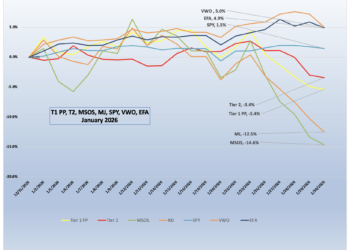New York’s Supreme Court of Albany agreed with hemp shop owners who sued the state and city, claiming that they were subjected to illegal searches and seizures as part of the state’s efforts to crack down on unlicensed smoke shops.
New York state legalized adult-use cannabis in March 2021. Nine months later adult-use sales started, but numerous lawsuits hindered the Office of Cannabis Management’s (OCM) effort to roll out cannabis business licenses. The state also started licensing hemp retailers.
As the state struggled to issue cannabis business licenses, illegal cannabis stores popped up around the state. In New York City alone, an estimated 3,600 illegal cannabis businesses were operating, according to the sheriff. But after efforts to close these businesses through the court system in 2023 failed, the SMOKEOUT Act was included in the state’s Fiscal Year 2024-25 budget, which created a task force and allowed the OCM to padlock illegal stores. In New York City, the sheriff was given authority to lead the effort, conduct raids and issue sealing orders under Operation Padlock to Protect.
Along with the raids on unlicensed businesses, at least five licensed hemp shops were raided. Those five — Super Smoke N Save, Two Strains Cannabis Company, Brecken Gold Athletics NYC, Breckenridge Cafe NYC and 7 Leaf Clover — sued the city and state challenging the constitutionality of those raids and requested a preliminary injunction.
On Jan. 13, Judge Thomas Marcelle agreed with the hemp shops. Stating that OCM had the sole authority to inspect licensed establishments, the court ordered the New York City Sheriff’s Office to stop participating in the inspections of licensed hemp shops and seizing product.
“Super Smoke persuasively alleges that OCM seized products based solely on the pictures present on their labels rather than the contents contained therein,” wrote Marcelle in the 25-page order. “Since the raid and seizure, none of the seized products were returned nor was any product testing performed. Finally, it must be noted that Super Smoke alleges that the sticker affixed to its doors has caused a significant decrease in customer traffic and overall sales, sizeable enough to place its continued operation in potential jeopardy.”
Armed raids and warrantless searches
In several instances, armed law enforcement officers entered the shops without warrants and seized product based on the assumption that they were illicit, often disregarding available COAs that would have shown otherwise.
“The merits prong starts with a simple fact: OCM’s and the Sheriff’s Office’s searches of petitioners’ businesses and the seizure of their products were done without a judicial warrant.”
The court order also pointed out that it is only appropriate for the OCM to conduct inspections of its own licensees because other agencies are likely to lack the expertise to properly conduct them.
“Normally, a licensing agency has the sole power to inspect its licensees — for good reason — the agency has expertise in its field. And so is the case here,” wrote Marcelle. “As was adduced at the hearing, OCM inspectors are trained on the statutory, scientific, and administrative distinction between hemp and marijuana — sheriff deputies are not.”
Following the raids, businesses were often required to post notices on their windows indicating that the business had illegally sold cannabis.
The court ruling allows the hemp businesses to remove the signs from the front of their shops labeling them as criminals and mandates that their seized products be returned. It also bars the sheriff’s office from conducting any more warrantless raids of hemp licensees. Moving forward, only OCM will be permitted to inspect these locations, without arms and with no more than two inspectors at a time.
“The Decision vindicates the rights of hemp licensees – often small, family owned businesses – who are struggling against government overreach subjecting them to armed raids, seizing lawful product, and labeling them as criminals, all without due process protections,” wrote attorney Joshua Bauchner of Mandelbaum Barrett in a released statement.
The court’s ruling also notes that the “vast majority” of inspections have been conducted against unlicensed operators. Marcelle noted that his order does not prevent the sheriff’s office from inspecting shops that lack an adult-use cannabis or hemp license.
“The Office of Cannabis Management is currently reviewing the Court’s preliminary injunction to determine its impact on the agency’s enforcement activities,” said an OCM spokesperson when reached for comment.
The sheriff’s office did not respond to requests for comment.












